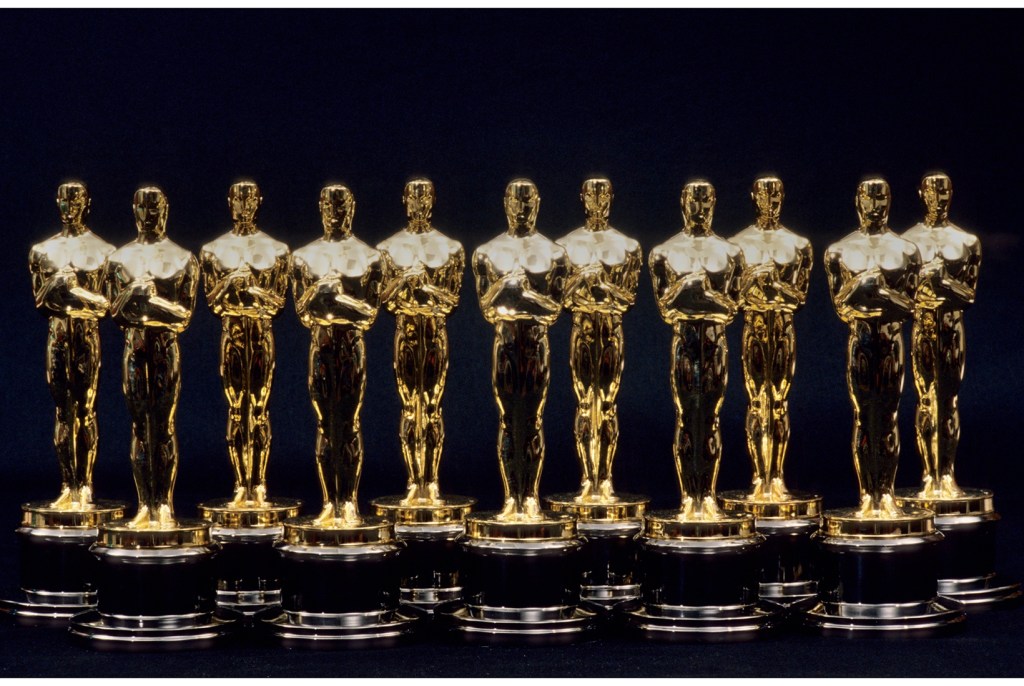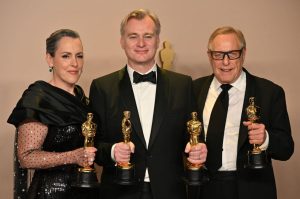Chloé Zhao’s Nomadland, predicted to win big at this year’s Oscars, is not a terrible film. It’s a slight, sentimental Grapes of Wrath-ish journey through the Discourse, with essential Discourse stop-offs at an Amazon warehouse and the Rust Belt. It belongs in the New Yorker, not on screen. As with almost every film to win big since No Country for Old Men 13 years ago, you just think: the ‘highest honors in filmmaking’? For that?
Amid all the change that’s being trumpeted at this year’s Oscars — more women directors, more ethnic minorities — the one thing missing is any discussion about why the awards are such a lousy guide to great cinema.
It’s no secret that the list of great filmmakers is a list of those who have never won a Best Director Oscar: Eisenstein, Lang, Pabst, Vertov, Vigo, Renoir, Welles, Sirk, Mizoguchi, Ozu, Bresson, Godard, Rohmer, Pasolini, Antonioni, Tarkovsky, Hawks, Hitchcock, Peckinpah, Leone, Kubrick, Satyajit Ray, Varda, Greaves, Fassbinder, Ackerman, Mambety, Ottinger, Lynch, Kaul, Herzog, Weerasethakul, Cronenberg, Kiarostami, Hsiao-hsien, Breillat, Von Trier, Denis, Spike Lee, Dumont, Ade, Diaz, and so on.
The Oscars don’t have a diversity problem. They have a problem identifying films of aesthetic value. This is their structural bias. We don’t need them to recover the moral high ground; we need them to recover the aesthetic high ground. Why would anyone care about a film prize otherwise? I’m not looking to the Oscars for a lesson on how to lead a virtuous life. If anything, I want them to show me the path to vice.
If the Oscars focused on what mattered, aesthetics, if they tried to understand what good cinema was — and crucially where good cinema is made — the endless arguments over underrepresentation would vanish, as the list above shows. Why? Because great cinema — and this should only be news to the most incurious or xenophobic — is being made on every continent, in every country and by every kind of person. Americans are not the only people making movies!
Yet the byzantine quota system that the Oscars have put in place in order to engineer equal representation embeds a policy of American exceptionalism. It’s diversity in one country and one language. Filmmakers who aren’t American, who don’t make films in English, who don’t have an American distributor, still hardly get a look in.
This year’s nod to internationalism includes Chinese-born Zhao, a Brit and a Dane. The rest of the world squeezes into the coach class that is Best International Feature. The first foreign-language film to take Best Picture was last year. Parasite’s win was instructive. Bong Joon-ho’s movie is slick and shallow. It’s pure Hollywood. It did not mark some sea-change in diversity. Quite the opposite. It showed that even when the Oscars suddenly realize the rest of the world exists, they recoil from the true consequences of what this could mean. A diversity of aesthetic principles, a diversity of storytelling traditions, a diversity of ideas and ways to see, is not what’s wanted. The new Oscars — just like the new Democrats — show there’s no better way to maintain a monoculture than under the cover of surface diversity.
The first non-white director to get the Palme D’Or at Cannes was in 1945 (Anand). The first to get the Golden Lion at Venice was in 1951 (Kurosawa). The first female director to get a Berlinale award was in 1965 (Varda). You don’t need quotas for diversity. You just need to realize that most of the best cinema is not American. The Academy will never truly understand or accept this.
This article was originally published in The Spectator’s UK magazine. Subscribe to the US edition here.


















